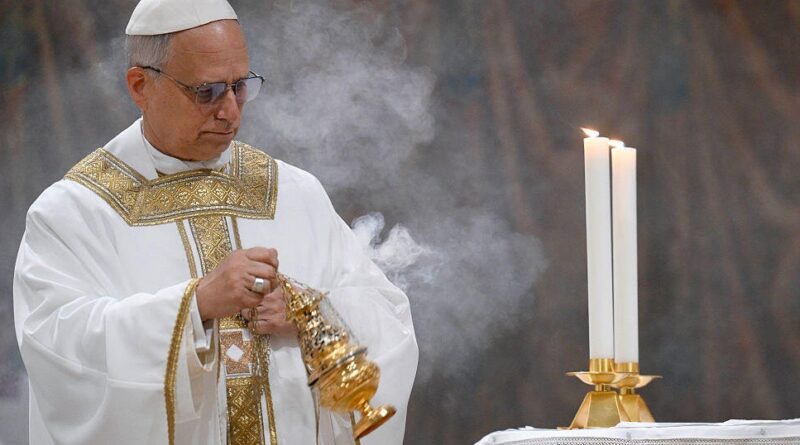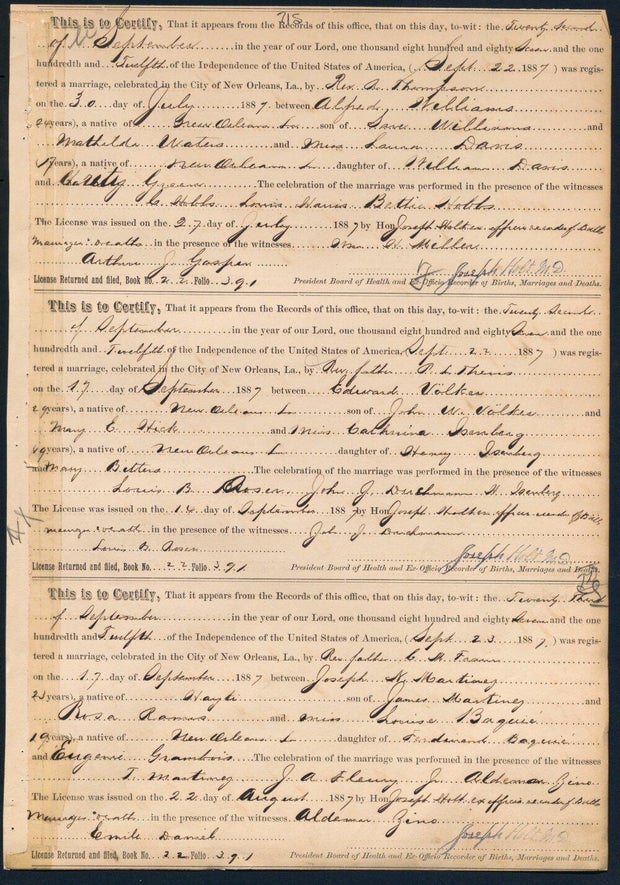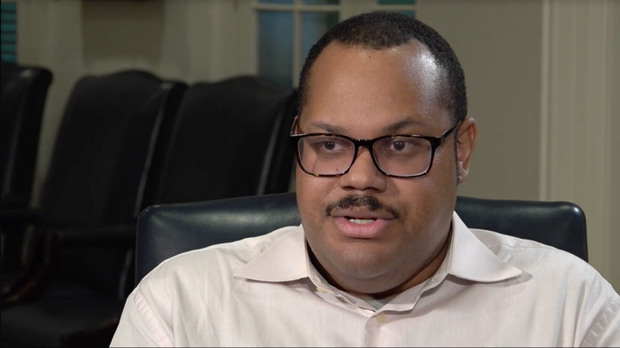Pope Leo XIV’s New Orleans Creole lineage has city buzzing with excitement
America’s most European city is buzzing over the news that the Catholic Church’s new pope is not only from the U.S. but also has Haitian and Creole ancestors from New Orleans.
While Pope Leo XIV was born in Chicago, Illinois, records show that his family lineage has deep roots in Louisiana. When his maternal great-grandmother was just a baby, she was baptized in 1840 at the city’s iconic St. Louis Cathedral in Jackson Square, the New Orleans Archdiocese said.
A couple of decades later, the pope’s maternal great-grandparents — Ferdinand D. Baquie and Eugenie Grambois — married on Sept. 19, 1864, in New Orleans’ St. Mary’s Church on Chartres Street, according to the New Orleans Archdiocese’s sacramental records.
According to records from the Vital Records Collection at the Louisiana State Archives, Leo’s great-grandparents’ death certificates show they died in Louisiana, as well.
Vital Records Collection at the Louisiana State Archives
A marriage certificate from the Louisiana State Archives shows Leo’s maternal grandparents — Joseph N. Martinez and Louise Baquie — married in New Orleans on Sept. 17, 1887.
Historians say the pope’s grandparents moved to Chicago in the early 1900s and they remained married for over 50 years.
Jari Honora, family Historian with the Historic New Orleans Collection, was the first to discover the pontiff’s family ties.
“I was just thrilled and almost in disbelief that the pope would have a New Orleans connection,” Honora said.
Louisiana State Archives records also show the pope’s maternal grandmother identified as being from New Orleans and his grandfather identified as being a native of Haiti.
He says the pontiff’s maternal grandfather, Joseph Martinez, was later listed as being from the Dominican Republic. However, in the earliest census records in which he appears, Martinez and his entire household were listed as being from Louisiana.
“It causes you to wonder, maybe there was sort of a conscious memory of some Haitian ancestry that he was speaking to, or maybe he really thought that he had been born in Haiti, or maybe there was even early on, an attempt to sort of obfuscate the true origins of the family,” Honora said. “I can tell you that by the time they get to Chicago, there’s one census where he’s listed as Maltese, which is not correct.”
Honora — a Creole Catholic himself — said the choice of such a multi-cultural pontiff is a special moment for the city of New Orleans and for Creole culture.
“It highlights the role that Catholics of color, that Black Catholics have always played, in the church since the very beginning,” Honora said. “We sort of take for granted here on the Gulf Coast and in Louisiana in particular, that there are Catholics of color, there are Black Catholics in the church.”
CBS News
Honora said he’s still researching whether the new highest leader of the Catholic Church has ancestors who were once enslaved.
“I’m quite confident that we will get there on at least one line, and I say only one line… documenting enslaved ancestors is a totally different experience than some of the more contemporary research, say, 20th century or late 19th century research, where you have widespread adherence to vital records laws,” Honora said. “Prior to the 1870 census, after the Civil War, enslaved people are not listed in the census by name at all — there are only tick marks, check marks on slave schedules.”
Honora noted that Pope Leo’s love of cooking, and that of his mother, is likely something passed down from their Creole roots.
“That was one of the things that I read in interviews that the Holy Father did long before he was even a candidate for the papacy is that he was open to a vocation, because the neighborhood priests from the surrounding parishes, they were always in his home, because they loved his mother’s cooking, and now we know why: because she was a New Orleans cook,” Honora said.
People in the Big Easy said it’s exciting to see a pope with Louisiana Creole roots.
“I think if there was going to be a first American pope, this is a very good person to take on that role, it feels like a good representation, but also, he seems like someone that it seems like is going to represent the interests of a lot of Americans, more so than other cardinals might have,” said Emmaline Kelly, a native of New Orleans who attended Catholic school in the city and now works at a local business in the French Quarter.
She says she hopes Pope Leo will schedule a visit back to see his Creole roots very soon, and in the meantime, “hopefully follow in Francis’s footsteps, and open the Catholic Church’s arms to LGBT people… providing vocal support for refugees.”



